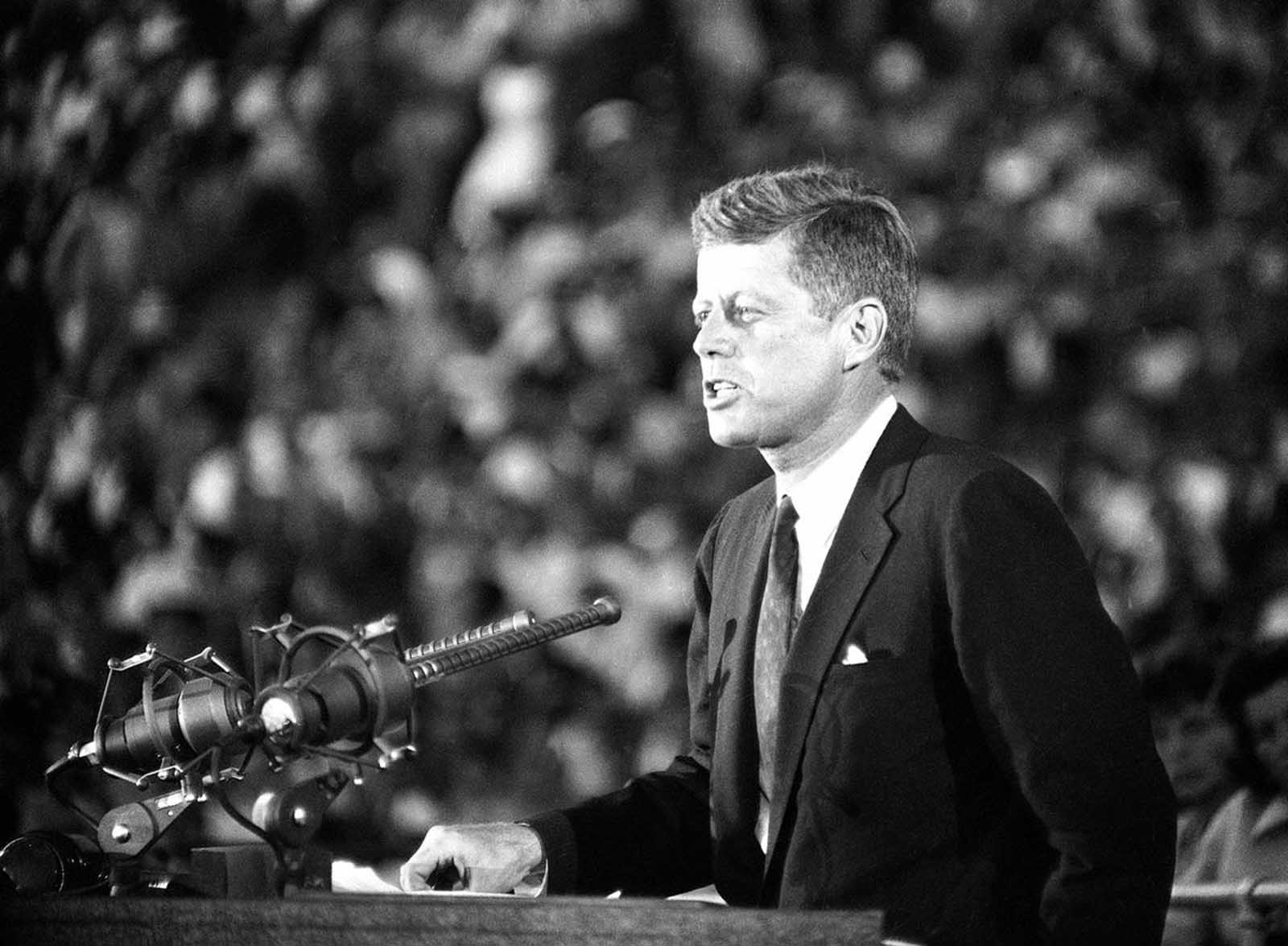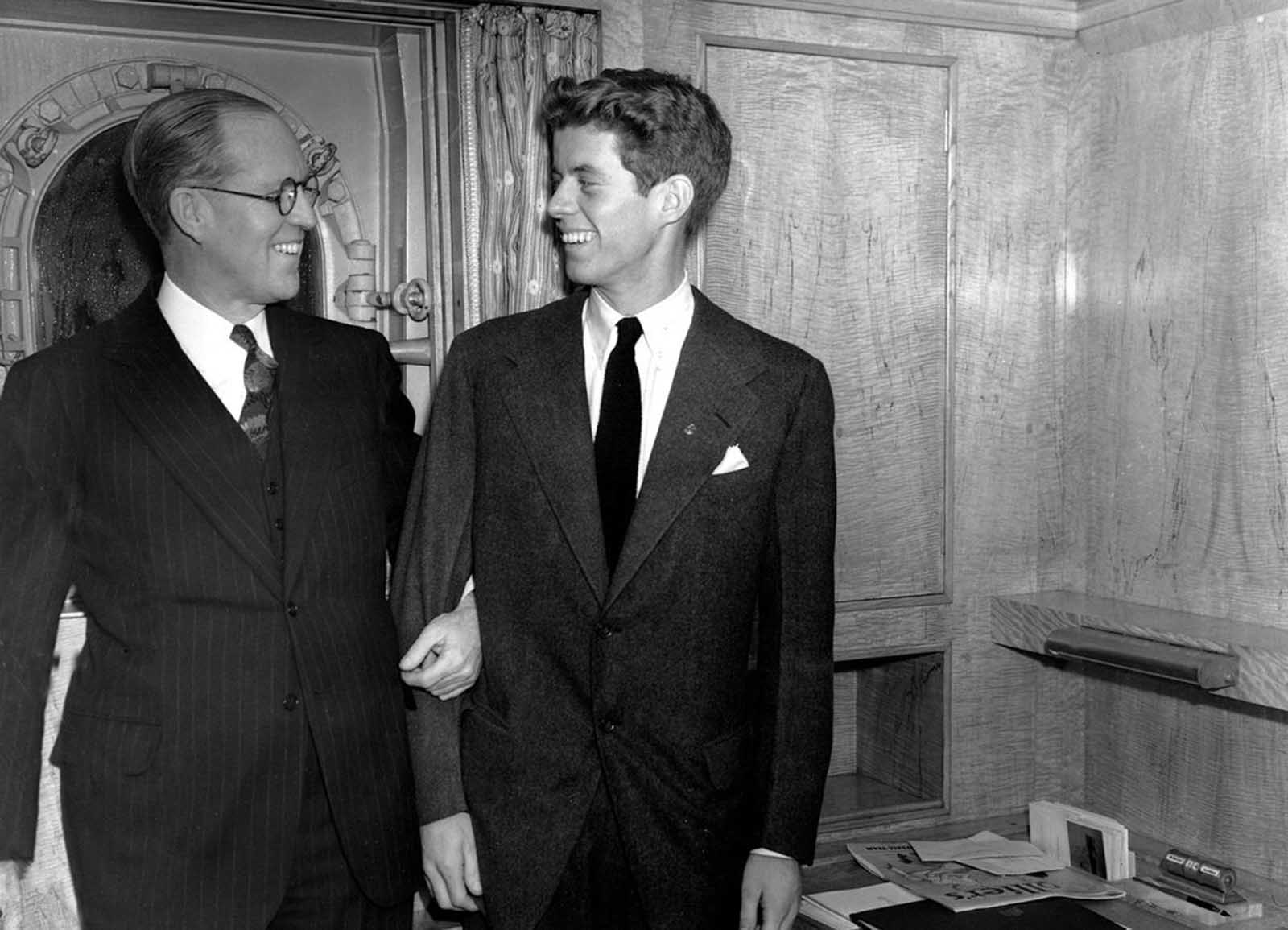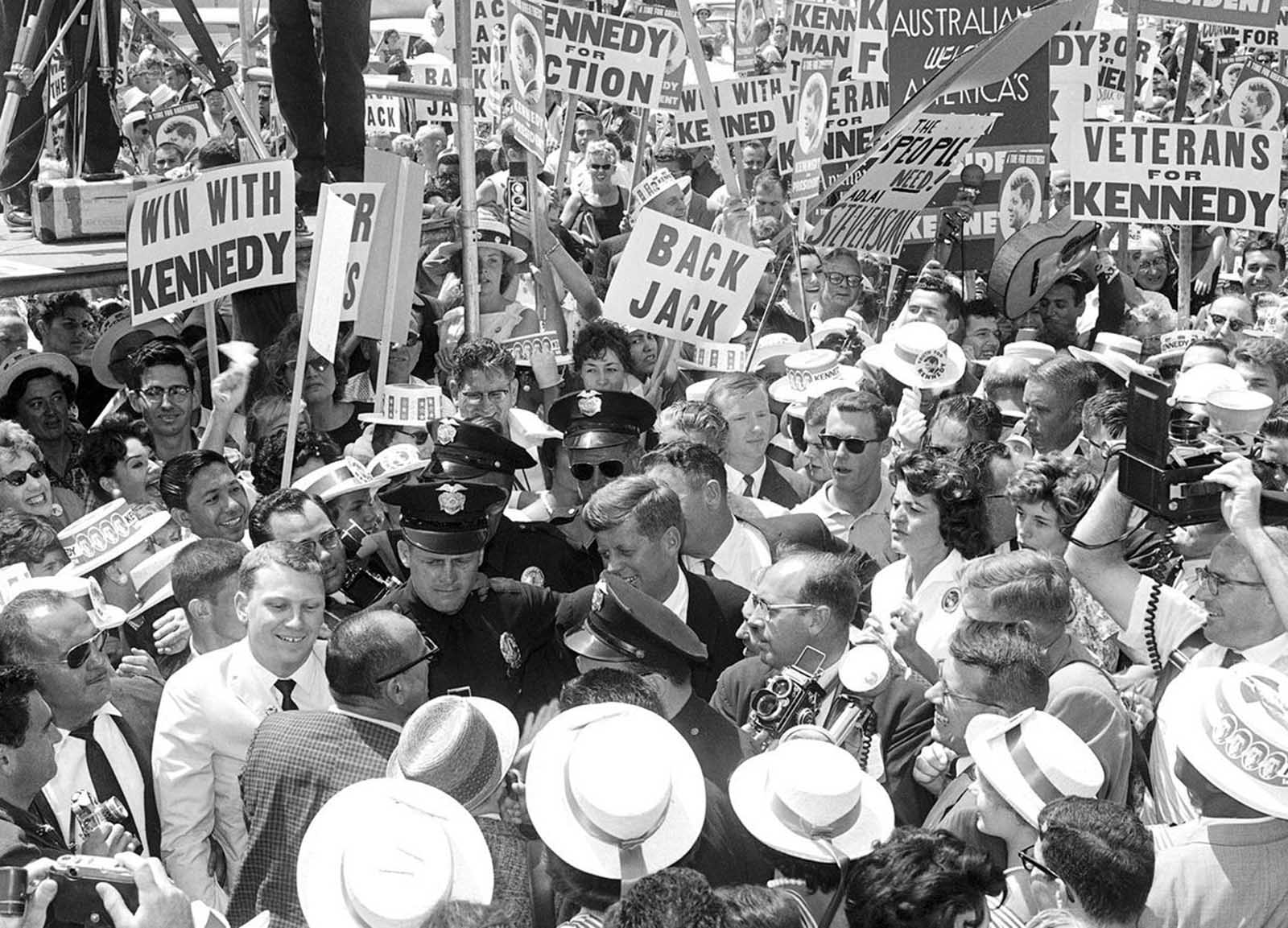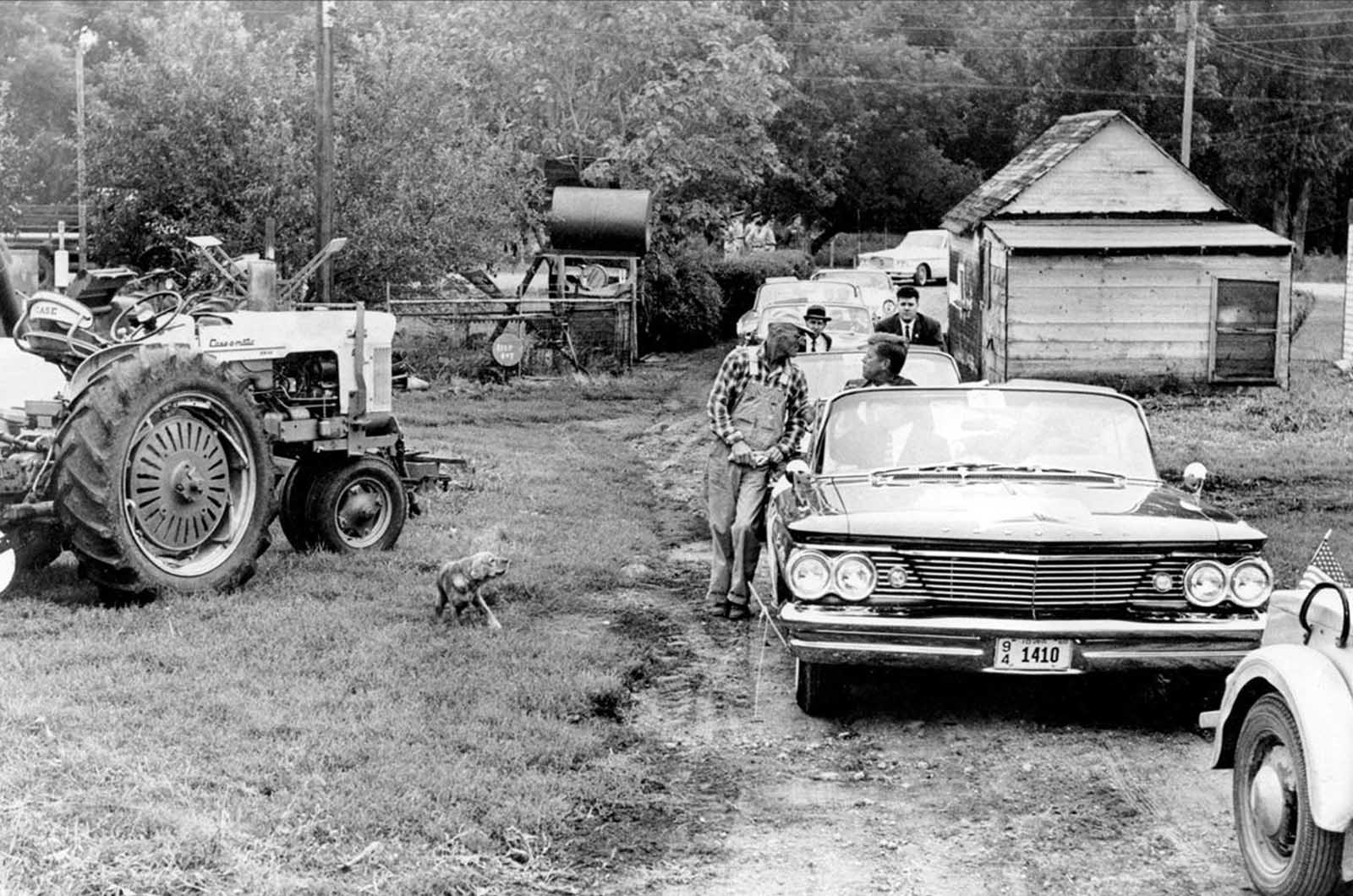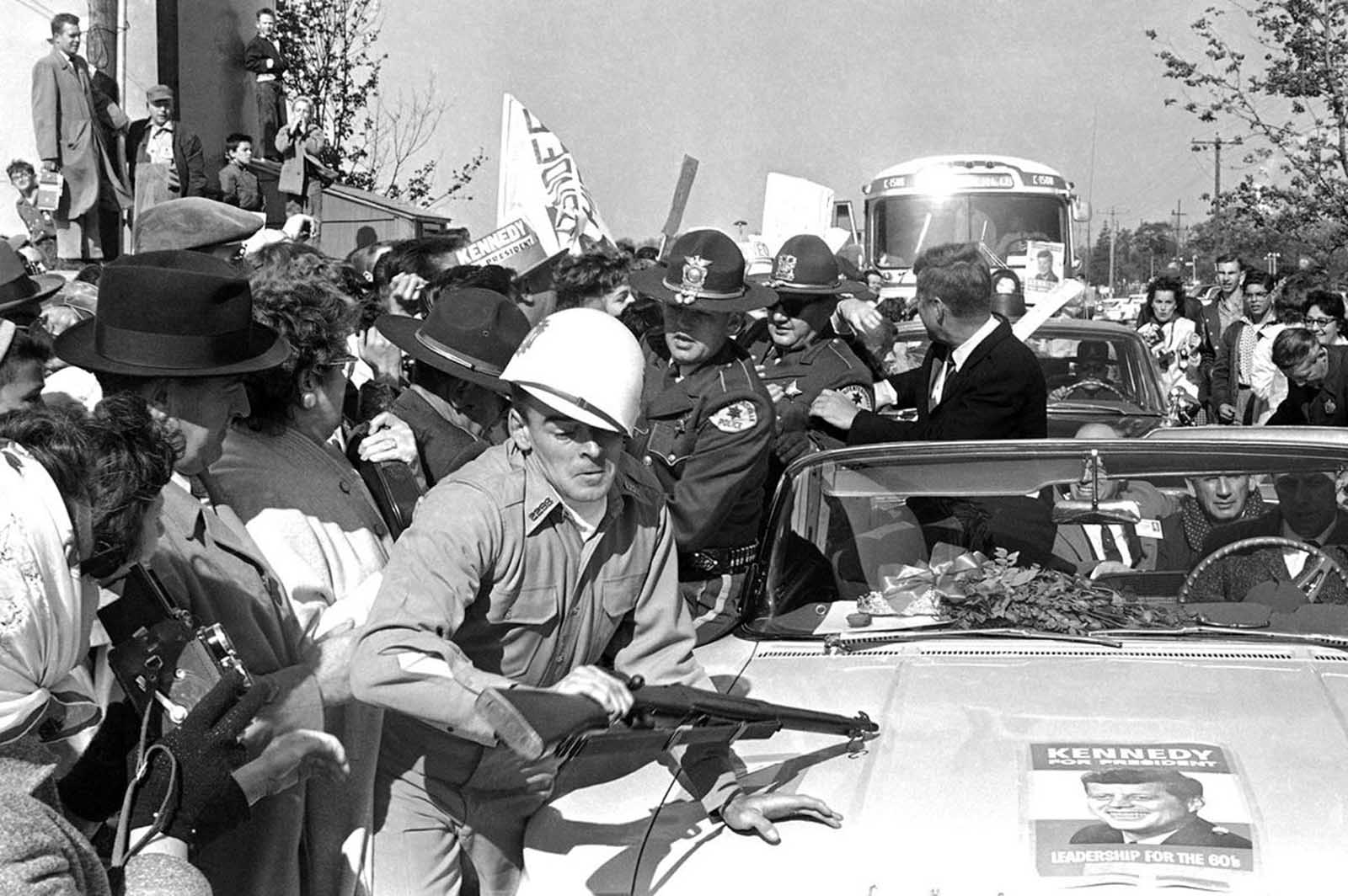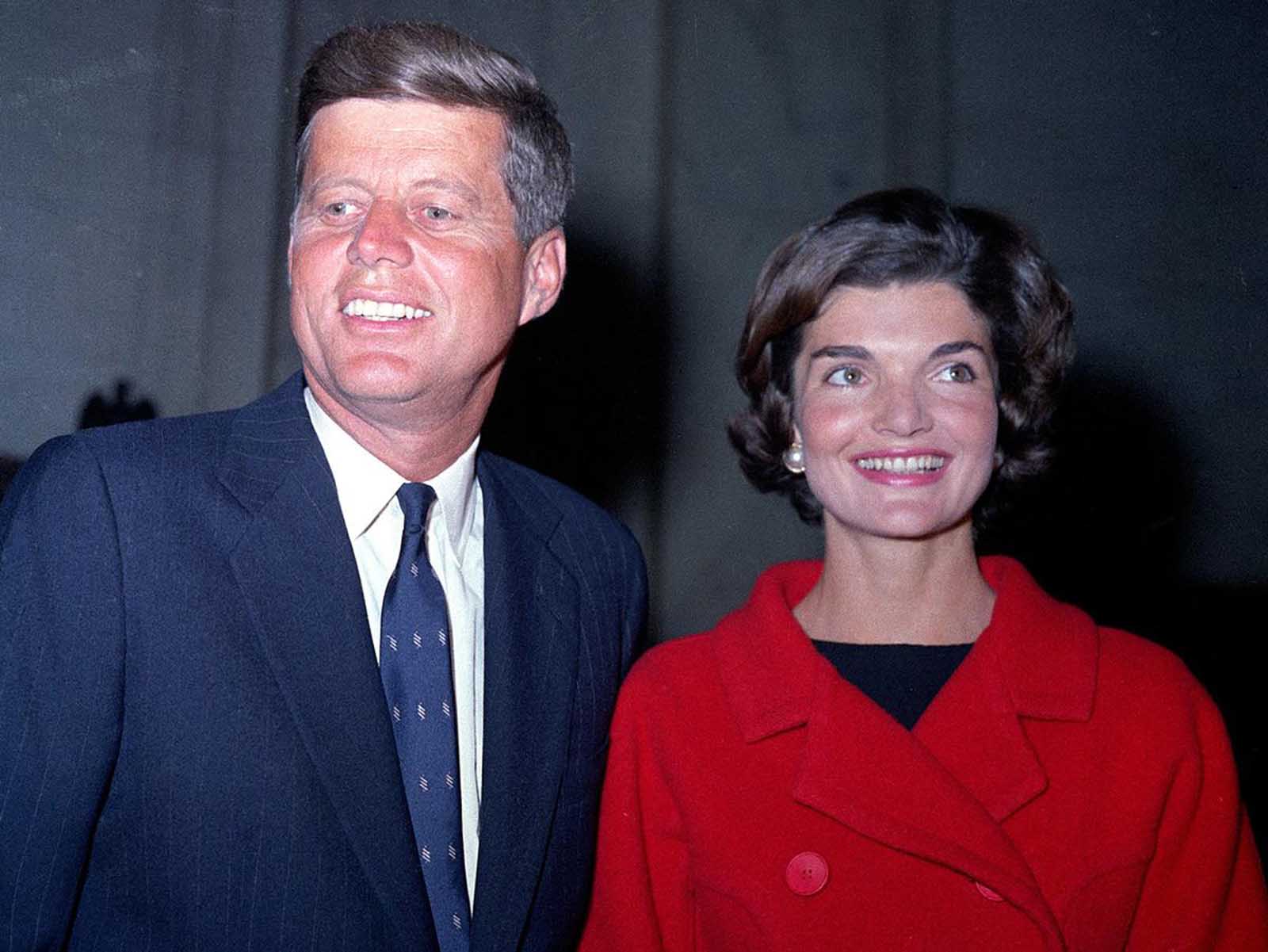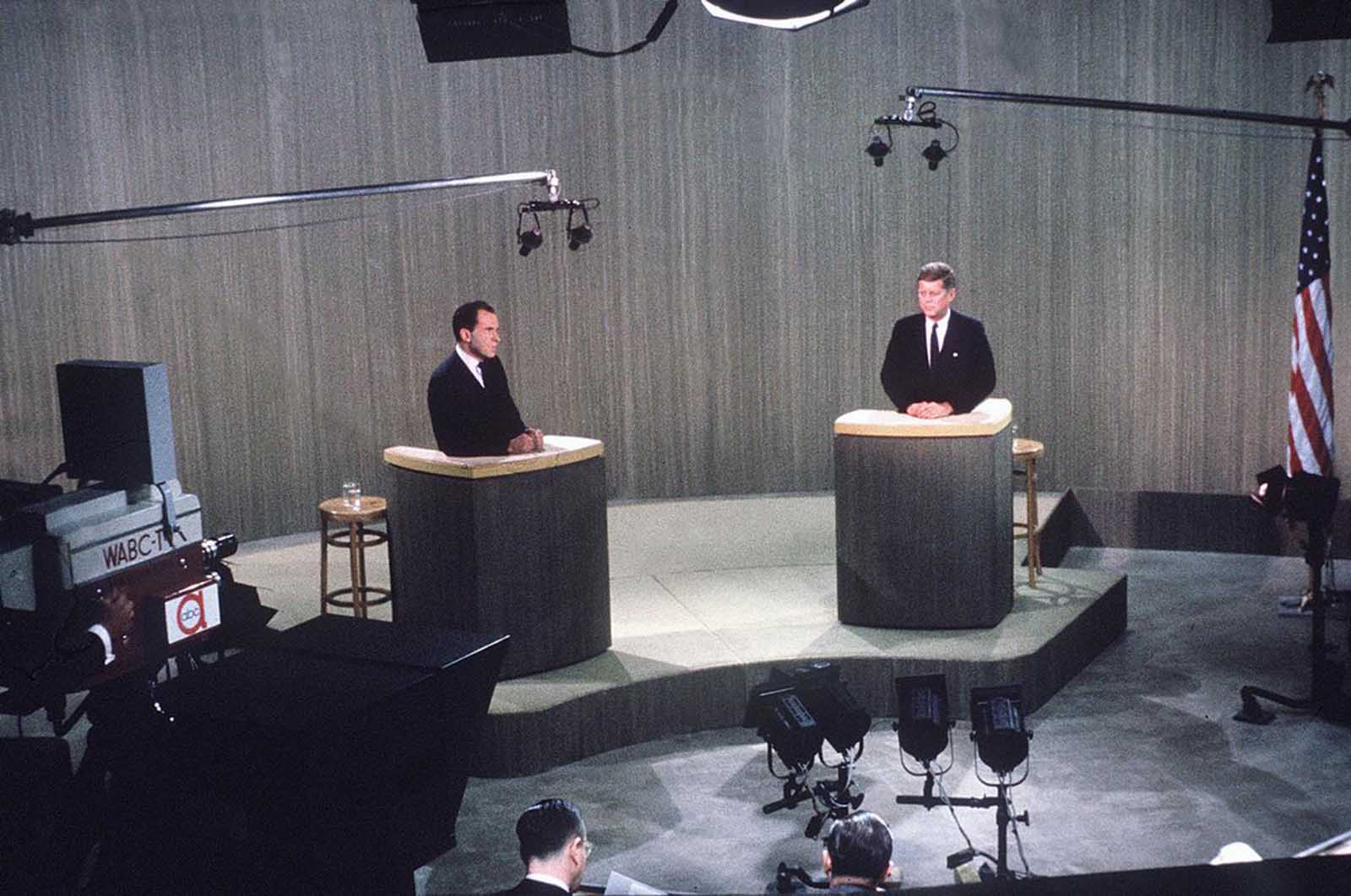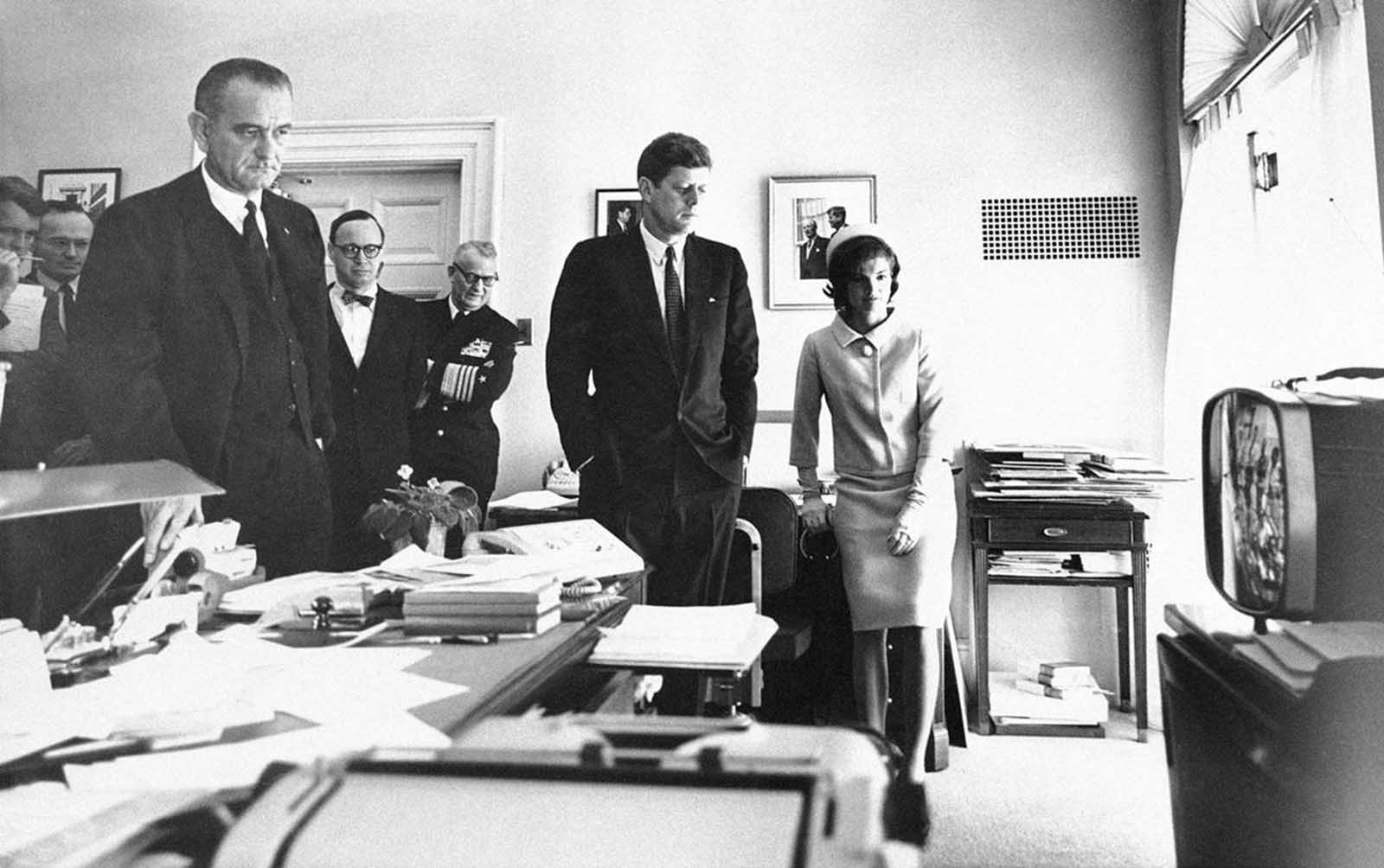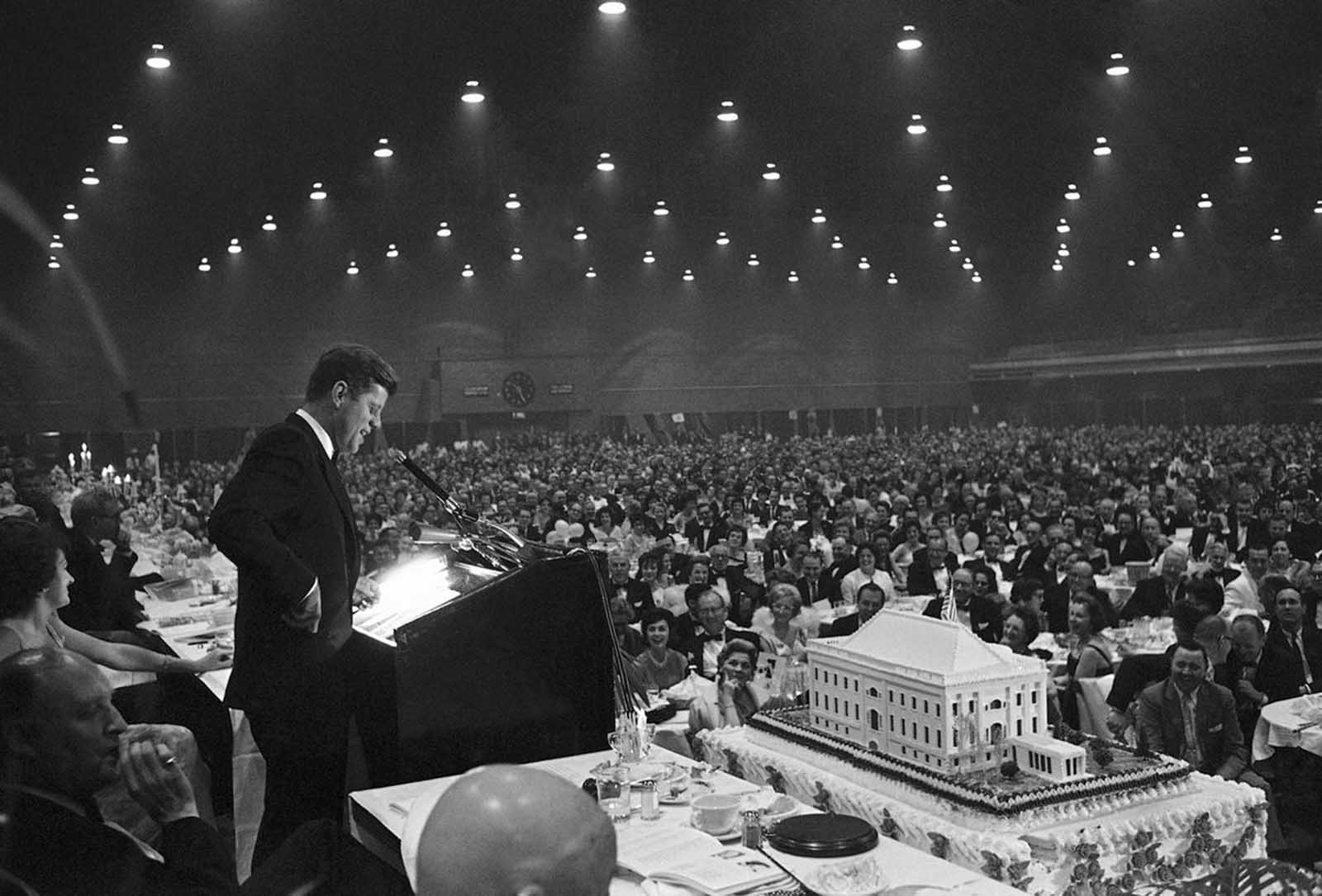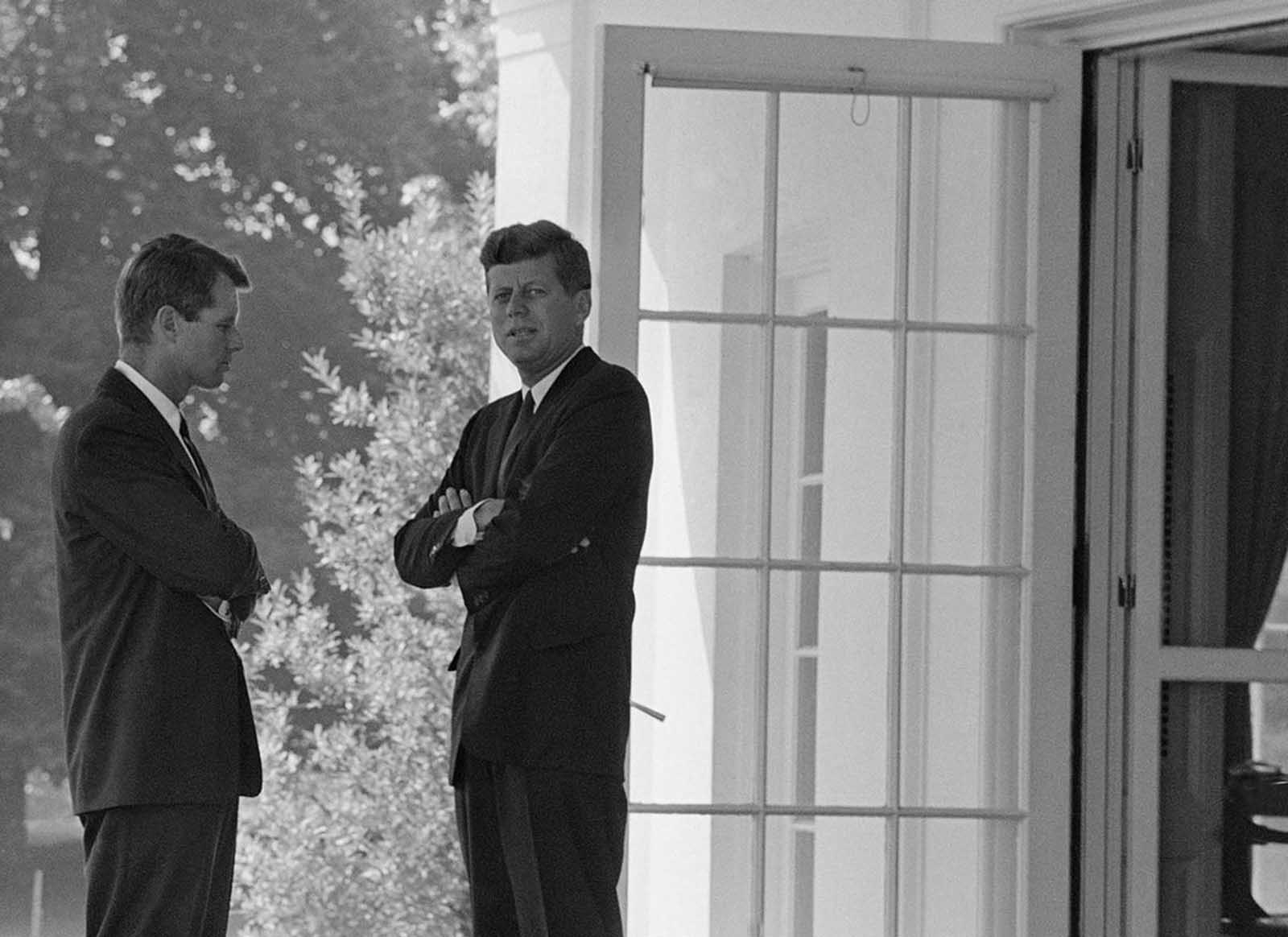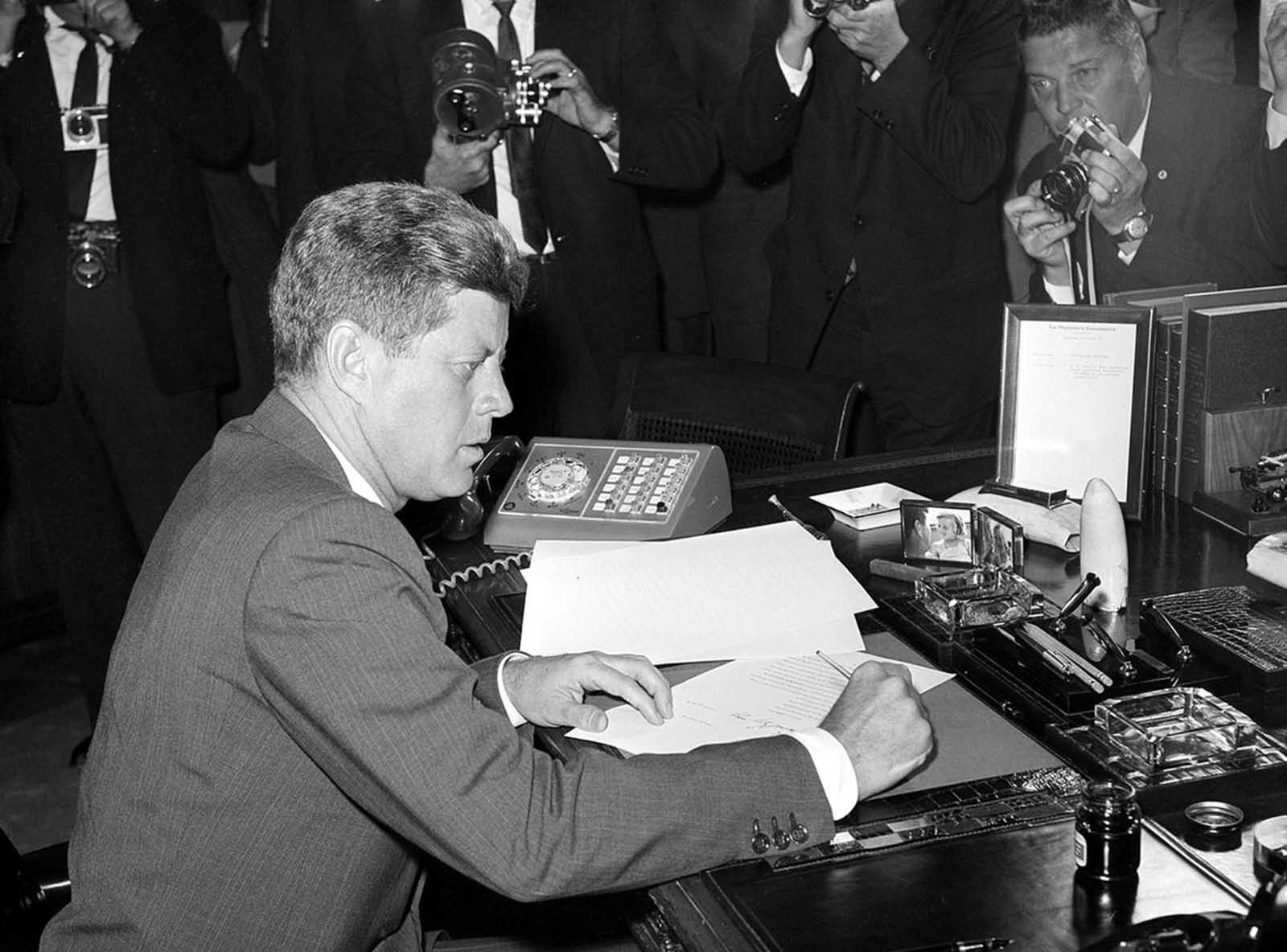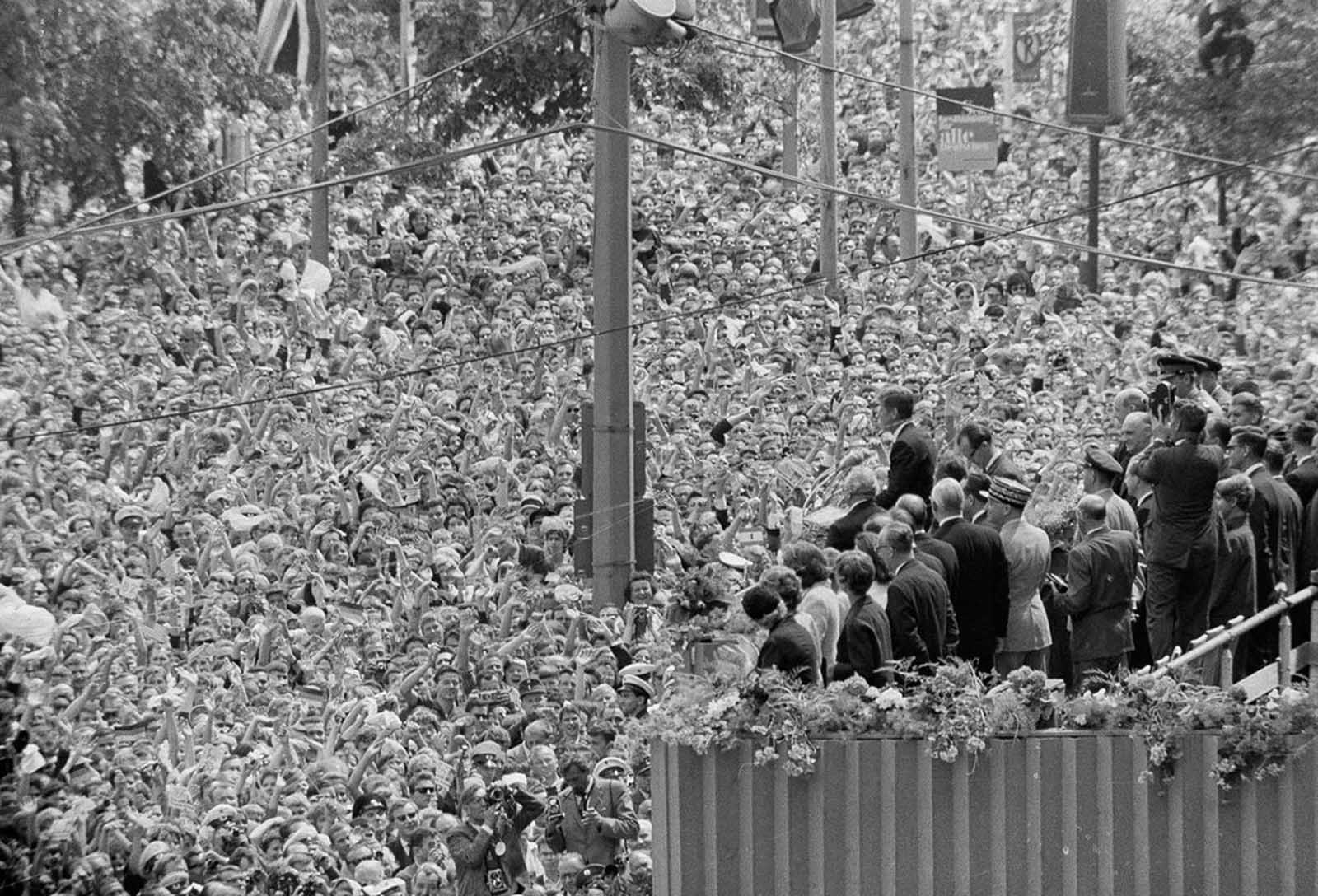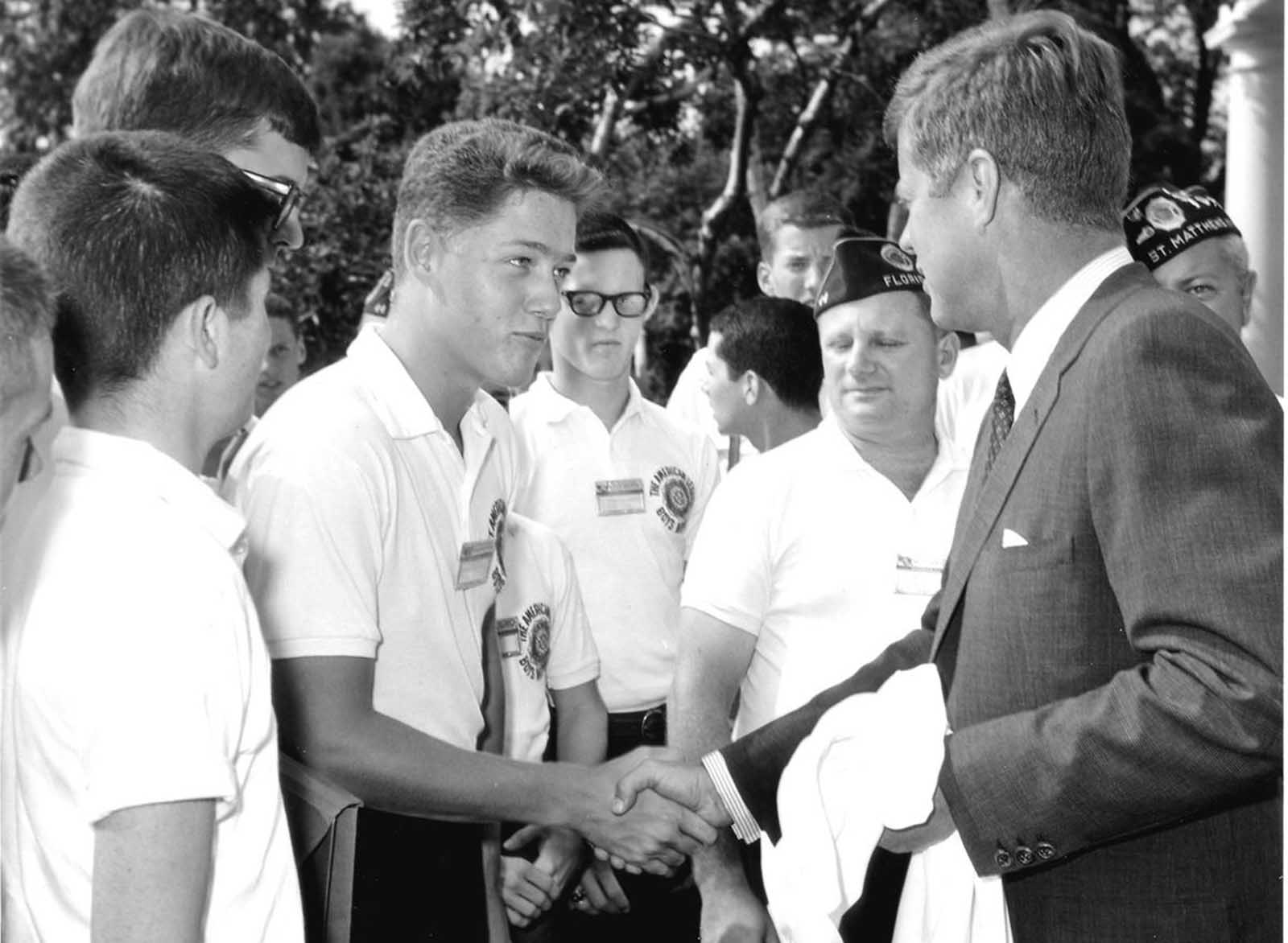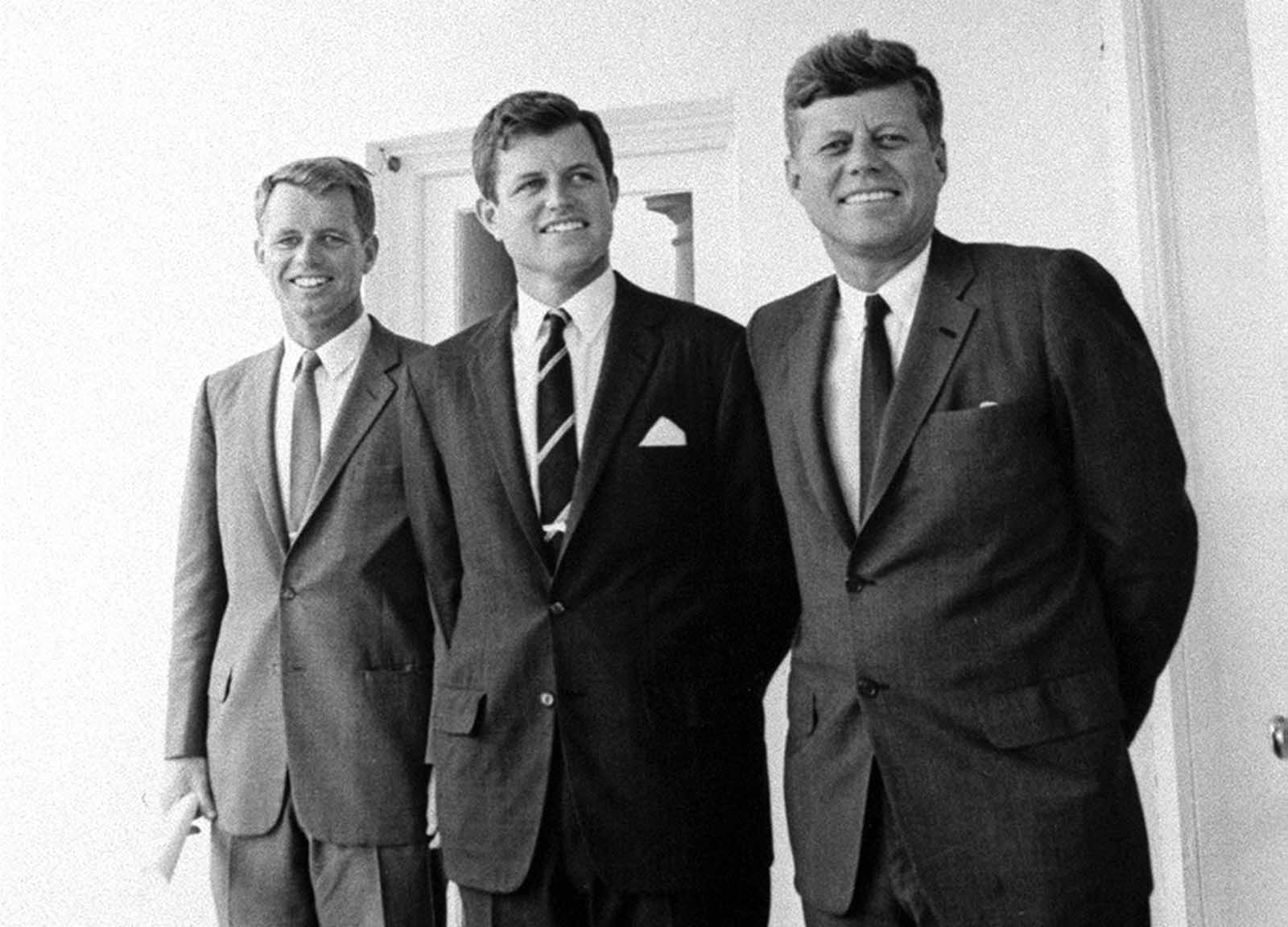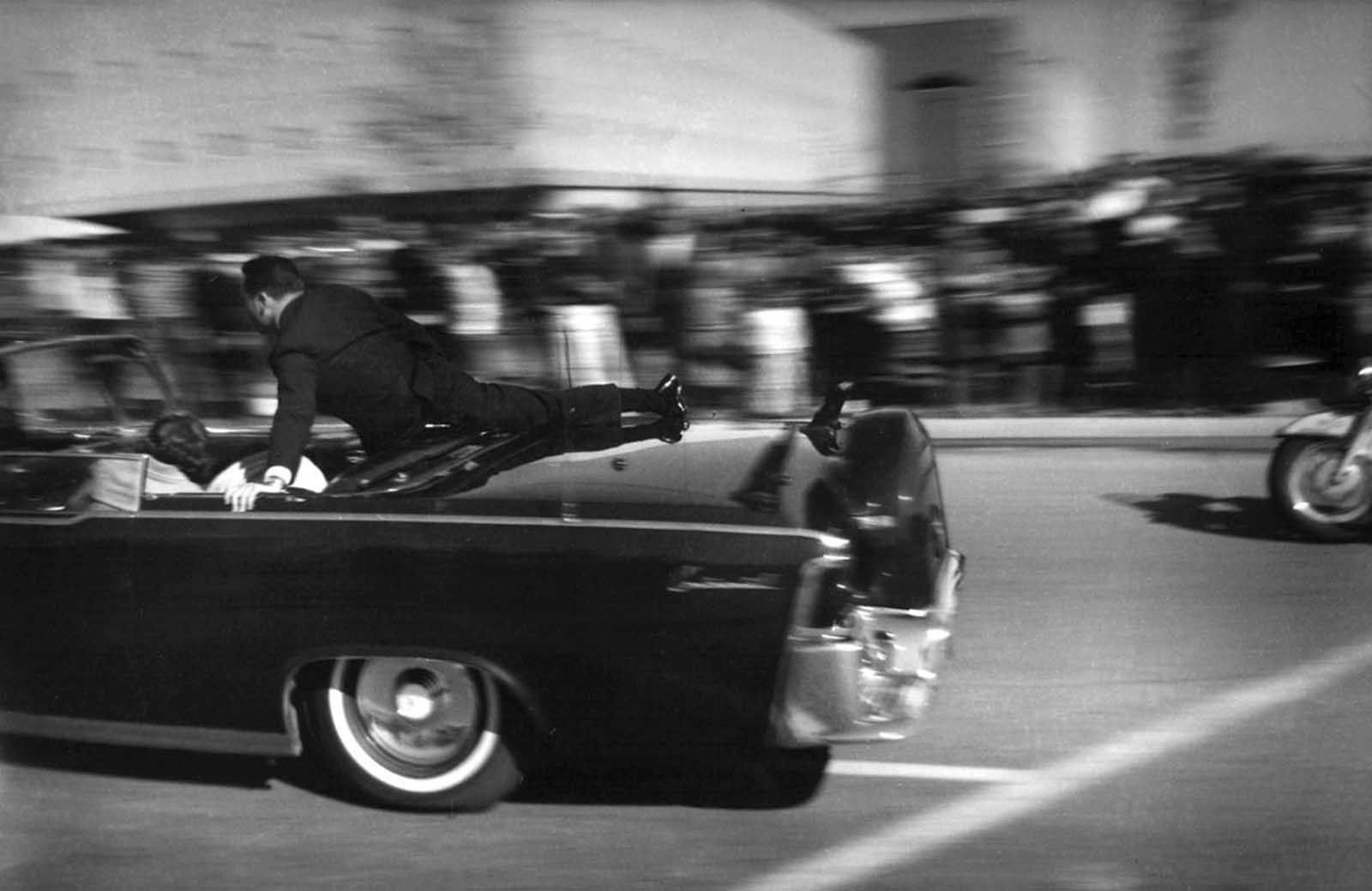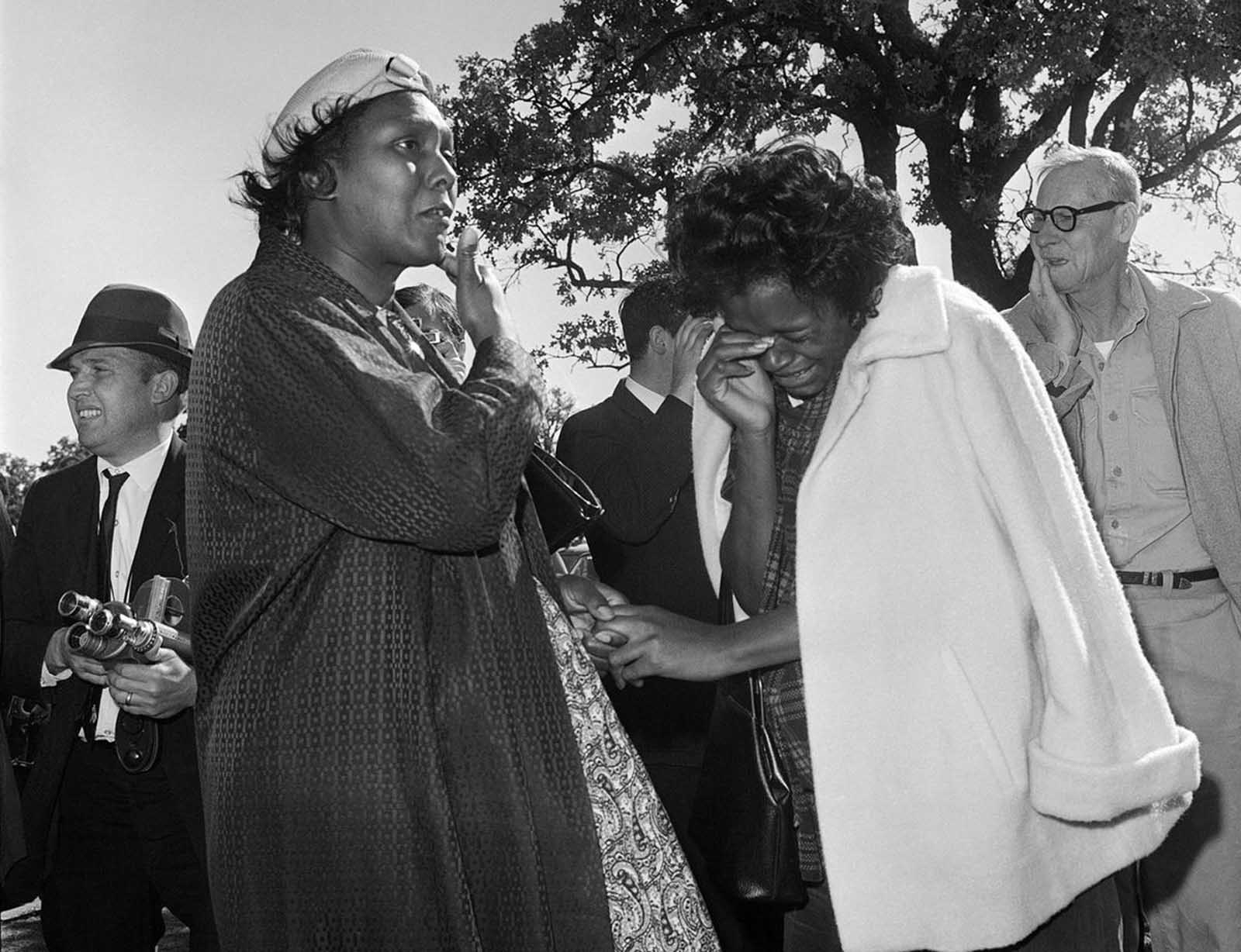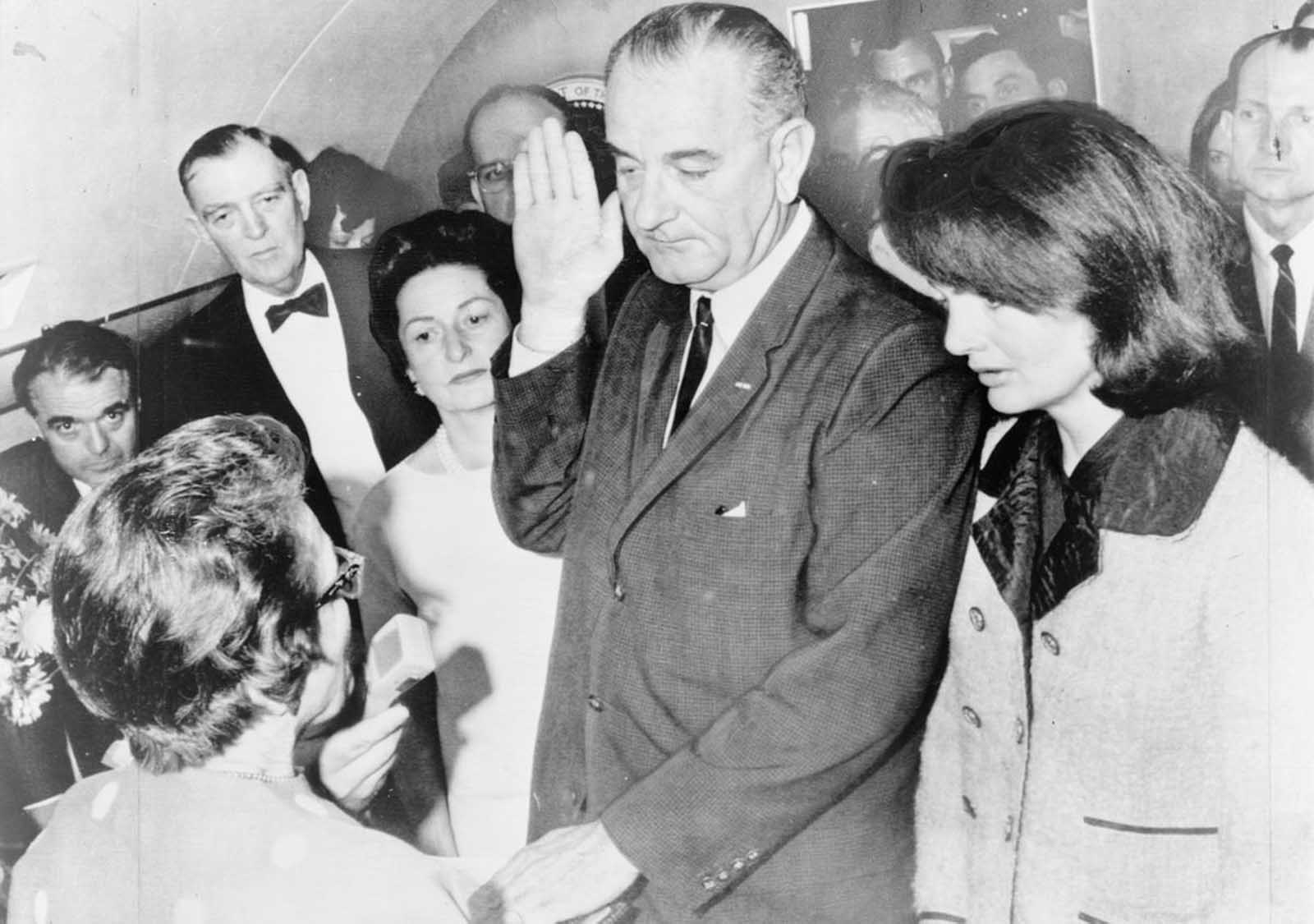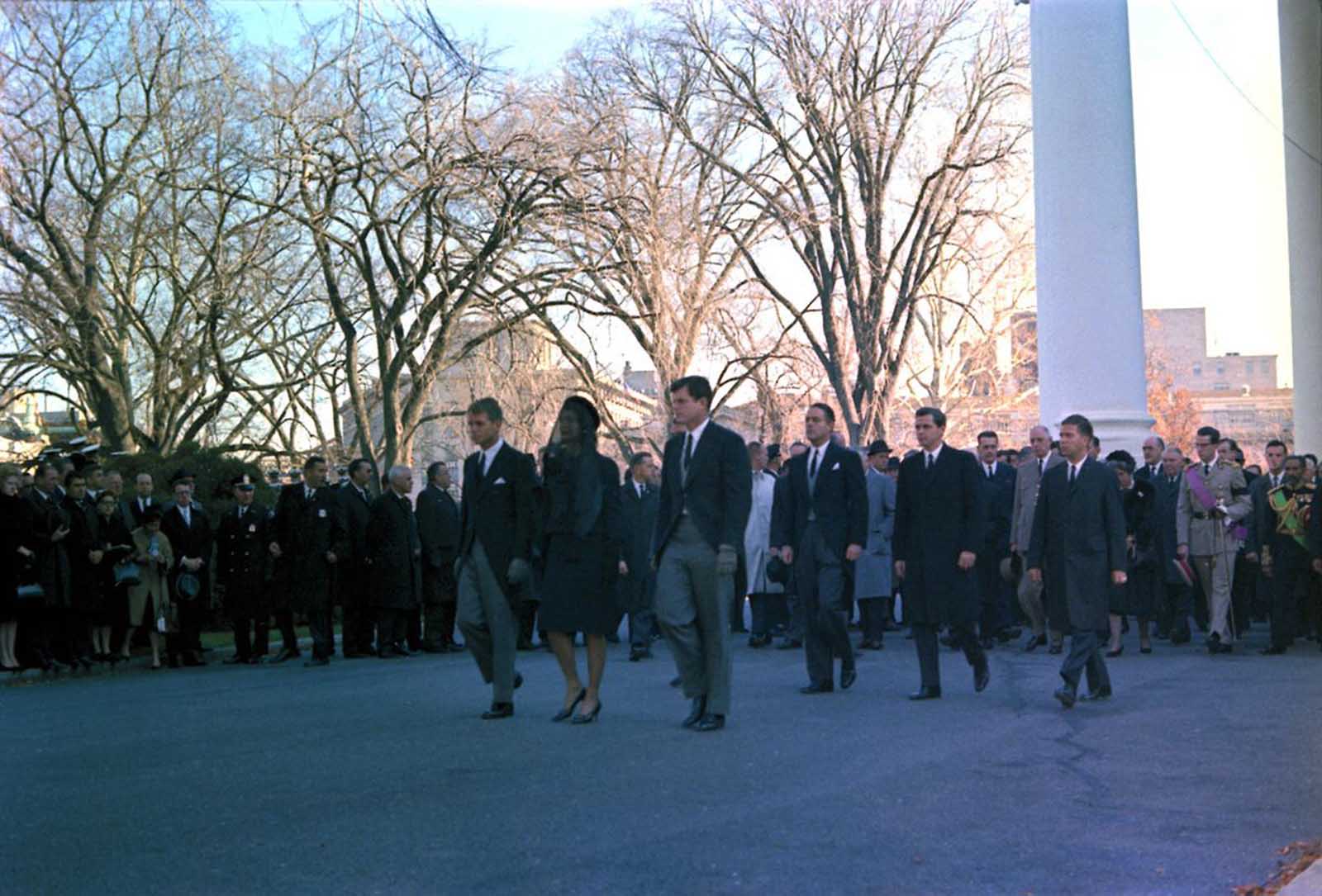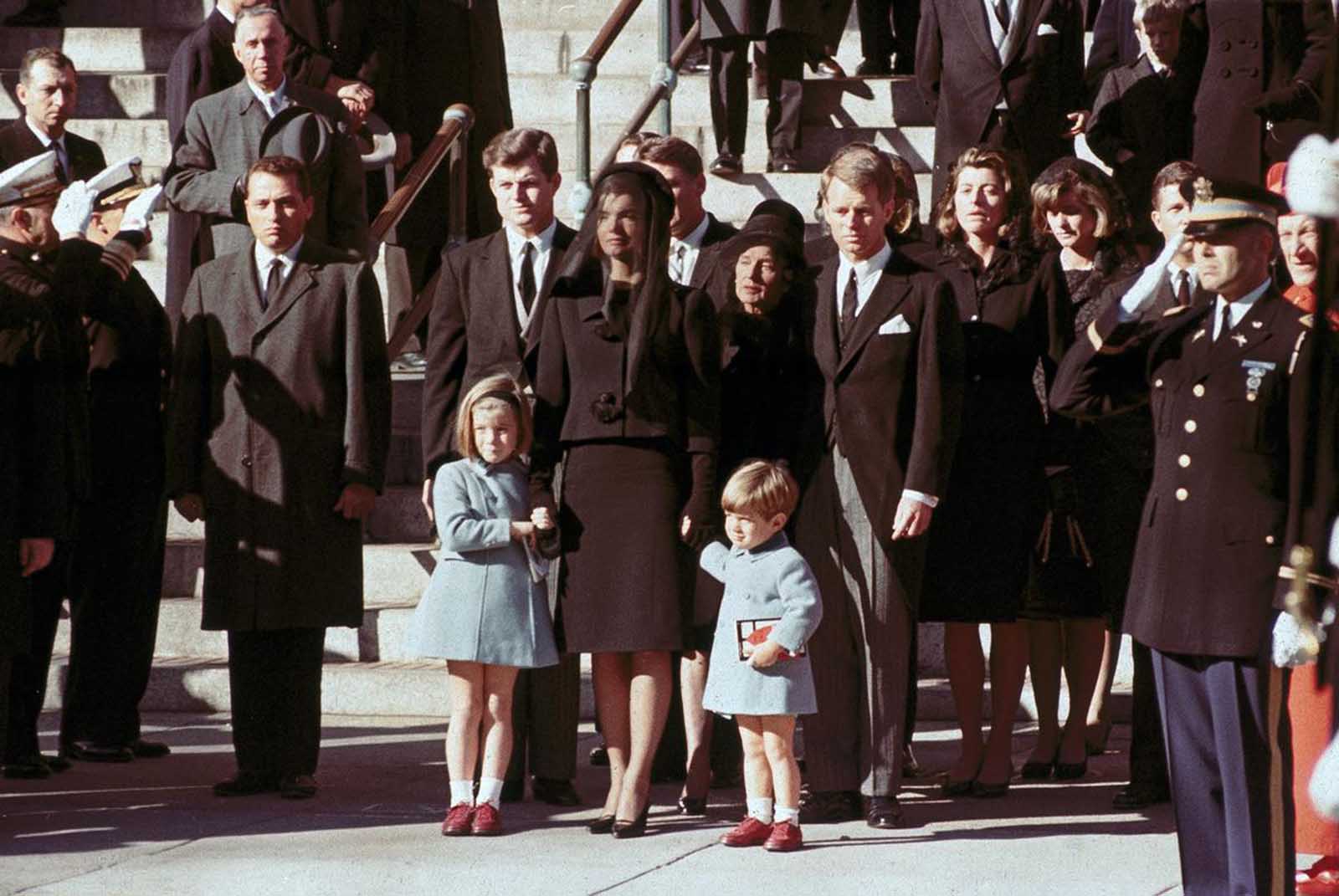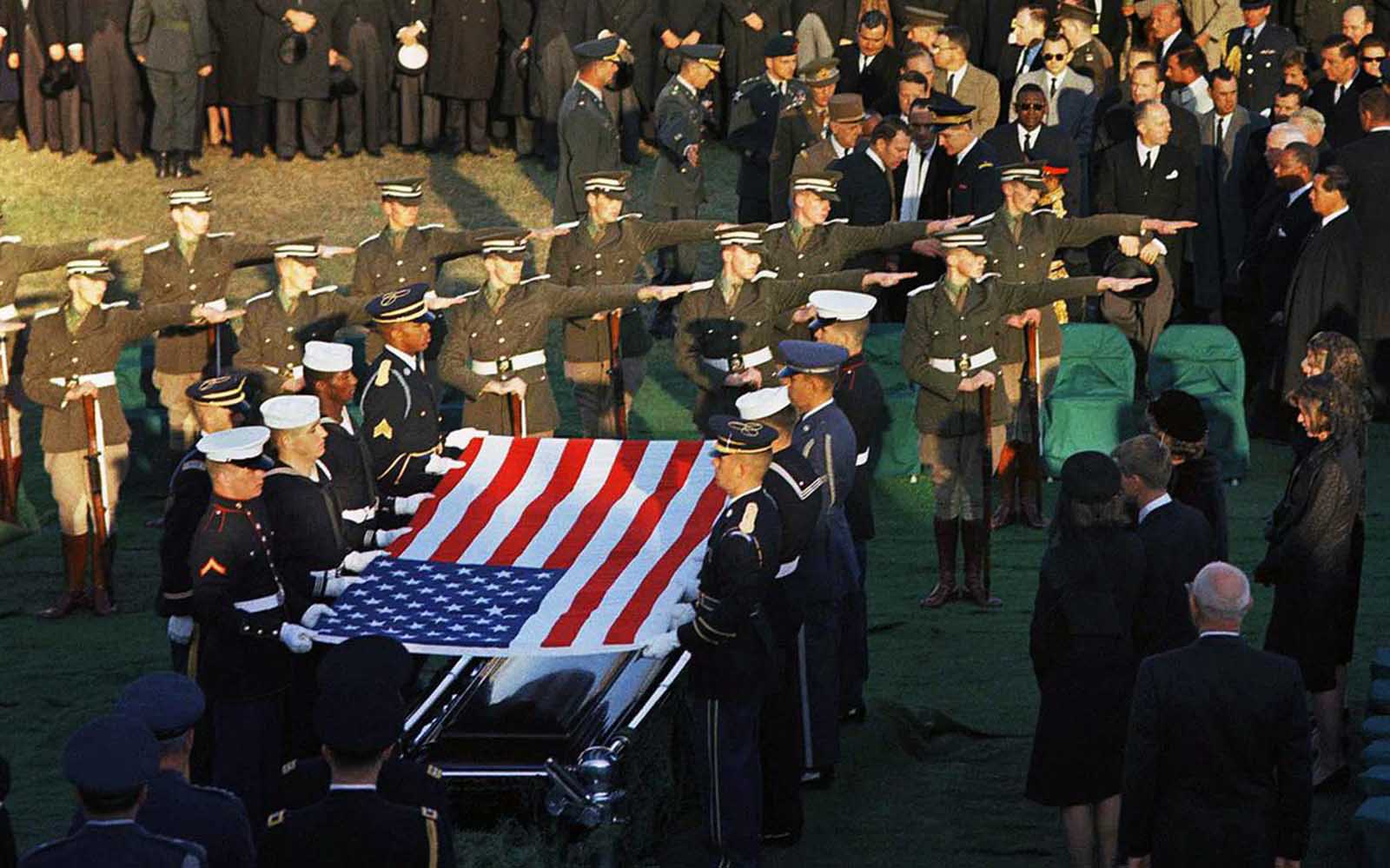During his childhood and youth, “Jack” Kennedy suffered frequent serious illnesses. Nevertheless, he strove to make his own way, writing a best-selling book while still in college at Harvard and volunteering for hazardous combat duty in the Pacific during World War II. Kennedy’s wartime service made him a hero. After a short stint as a journalist, Kennedy entered politics, serving in the U.S. House of Representatives from 1947 to 1953 and the U.S. Senate from 1953 to 1961. Kennedy was the youngest person elected U.S. President and the first Roman Catholic to serve in that office. For many observers, his presidency came to represent the ascendance of youthful idealism in the aftermath of World War II. The promise of this energetic and telegenic leader was not to be fulfilled, as he was assassinated near the end of his third year in office. For many Americans, the public murder of President Kennedy remains one of the most traumatic events in memory—countless Americans can remember exactly where they were when they heard that President Kennedy had been shot. His shocking death stood at the forefront of a period of political and social instability in the country and the world. (Photo credit: AP Photo / Library of Congress). Kennedy proposed a joint Soviet mission to the moon. Although Kennedy famously challenged the country in the first months of his presidency to land a man on the moon by the end of the 1960s, by September 1963 he had such concerns about the space program’s high cost that he proposed partnering with the Soviet Union on a joint expedition to the moon. “Why,” he asked in an address to the United Nations General Assembly, “should man’s first flight to the moon be a matter of national competition? Why should the United States and the Soviet Union, in preparing for such expeditions, become involved in immense duplications of research, construction and expenditure?” There were rumors that he considered dropping Lyndon Johnson from the 1964 ticket. With more than a year before the 1964 presidential election, rumors swirled that Kennedy was considering replacing Johnson as his running mate with Florida Senator George Smathers, North Carolina Governor Terry Sanford or another Democrat. Kennedy’s secretary, Evelyn Lincoln, wrote in her 1968 memoir that the president mentioned a possible switch to her three days before his death, and hours before the assassination, the November 22, 1963, edition of the Dallas Morning News printed an interview with Nixon, who was in the city on business, with the headline: “Nixon Predicts JFK May Drop Johnson.” Notify me of new posts by email.
Δ Subscribe
